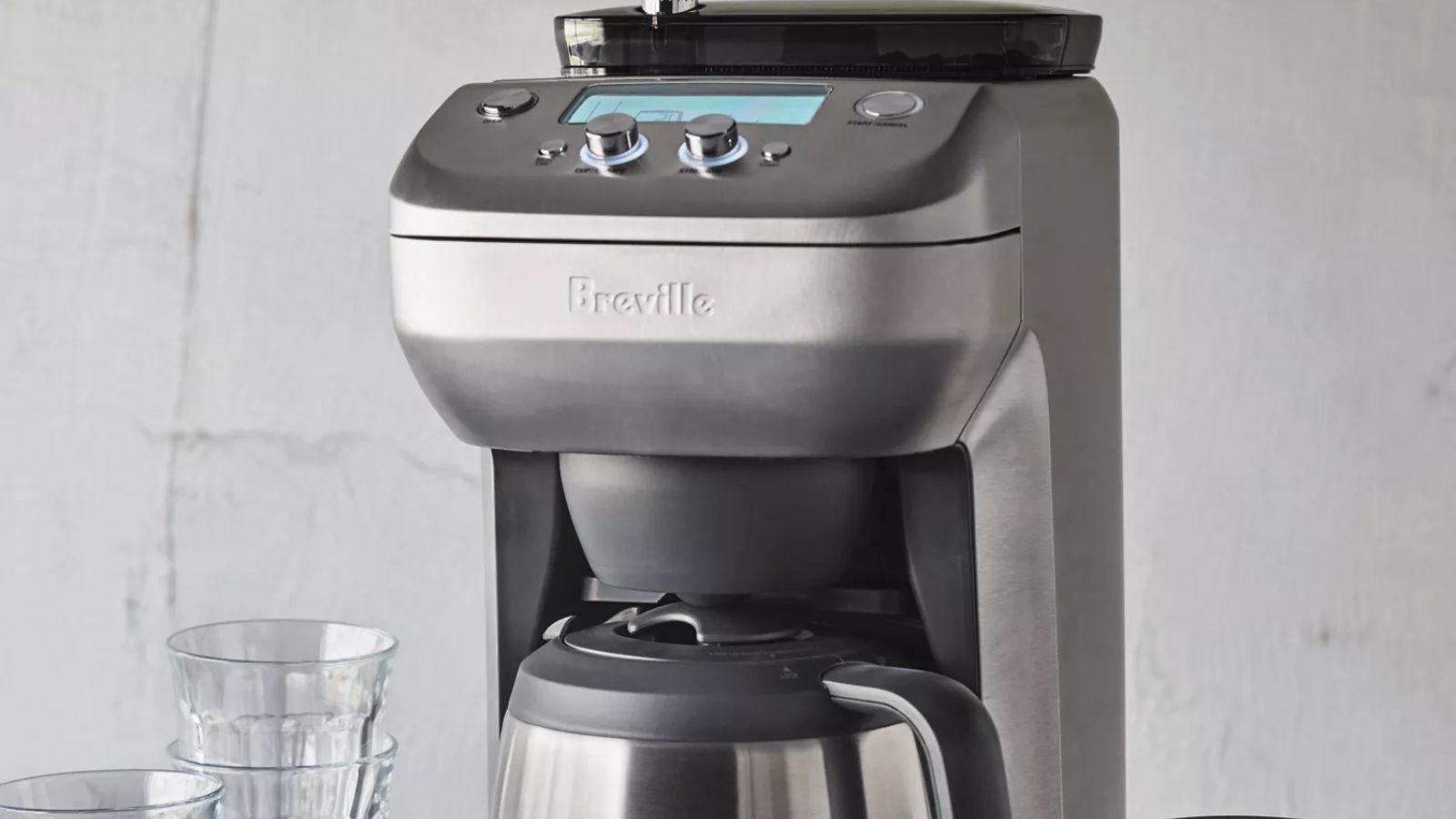
Most coffee enthusiasts will tell you that the best brews come from freshly ground coffee beans, so I was fascinated to test the Breville Grind Control, which has a built-in burr grinder on top so that you can automatically grind fresh beans for every pot of coffee that you make.
The Breville Grind Control Coffee Maker has several other features that help it stand out among the best drip coffee makers I have tested. It can brew up to 12 cups of coffee at a time, but it can also make single servings and dispense them right into your mug. It offers integral control over your brew with eight-strength settings and custom grind size.
While its specs are certainly impressive, I wanted to see if the Grind Control Coffee Maker delivers on its promise of a great cup of coffee, so I tested it over the course of two weeks. I used the coffee pot daily, experimenting with its different settings to get a sense of the machine’s strengths and shortcomings, and at the end of testing, I was impressed with the coffee maker’s versatility, as well as the delicious drinks it made.
Specifications
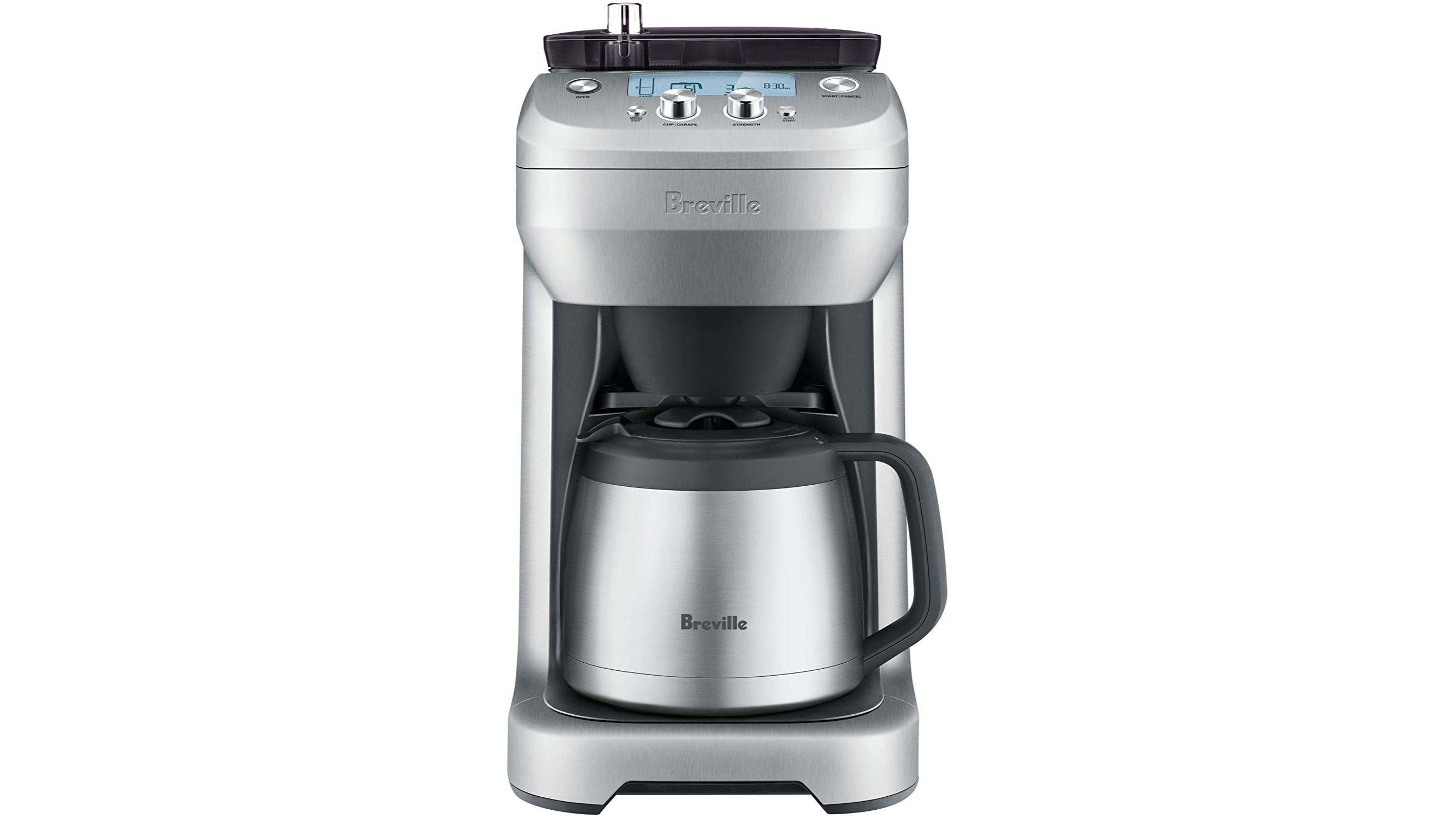
Unboxing
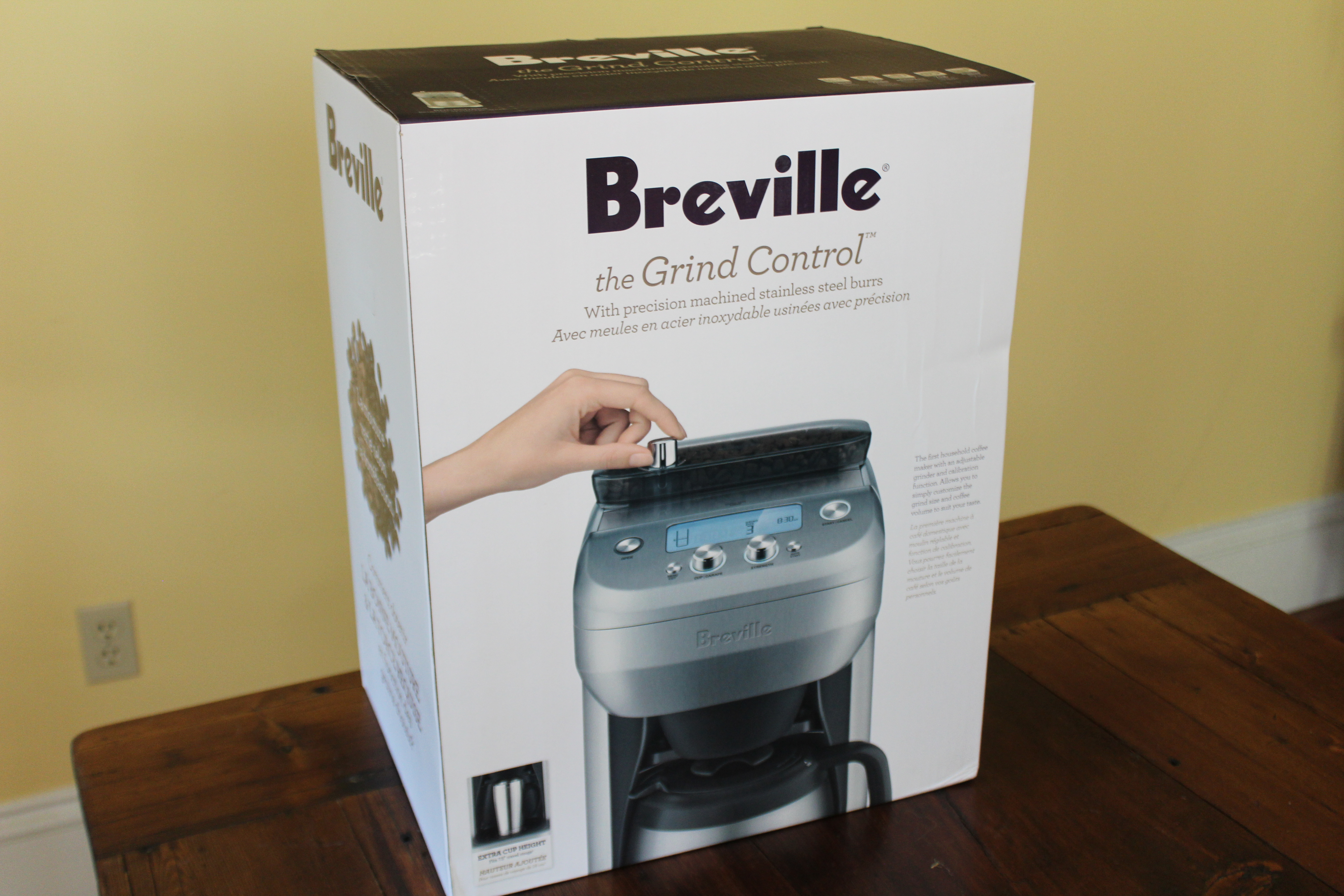
The Breville Grind Control Coffee Maker arrived in a medium-sized box, and it was packaged in styrofoam with lots of plastic. Once I removed it from the packaging, the setup was extremely simple. All I had to do was remove the remaining pieces of cardboard and tape on the machine, and it was essentially ready to go. This coffee maker has a sleek stainless steel design, and it’s about the size I would expect for a 12-cup coffee maker. I will say that the exterior smudges fairly easily, and after a few days of use, there were unsightly fingerprint marks where I frequently touched the machine. However, you can easily buff them off with a microfiber cloth if it bothers you.
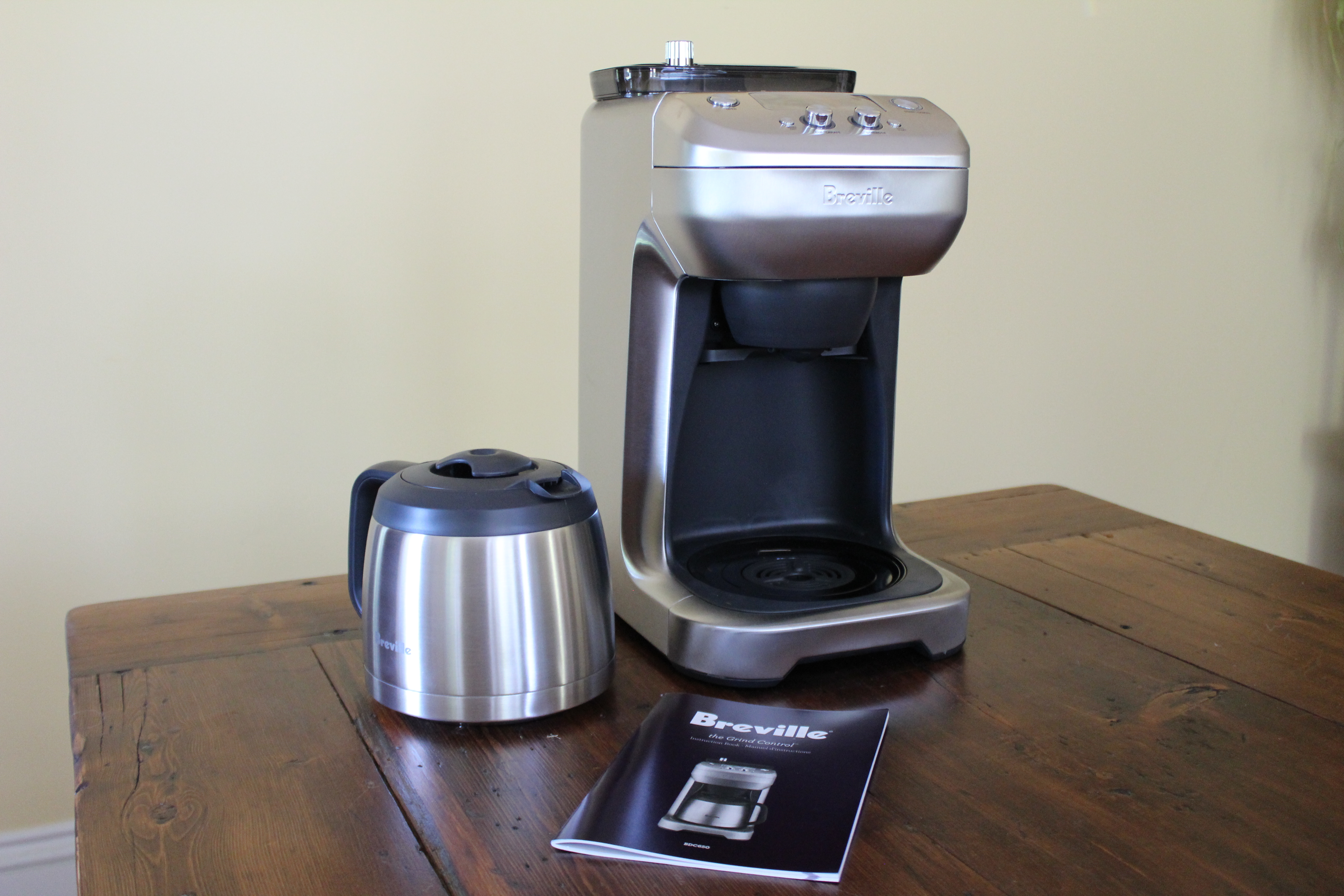
Naturally, one of the selling points of this coffee maker is its built-in bean grinder, which is located on top of the machine (the H&G team has reviewed the best coffee grinders too, so we're pretty expert in what makes these quality buys). It has a clear lid that you simply lift off, and you can adjust the grind settings using the small knob located next to the hopper. If you ever need to remove the hopper, there’s a knob inside that you can turn to unlock it from the base. This coffee maker also comes with a 12-cup stainless steel thermal carafe, which sits snugly on the base. The lid of the carafe is made from a lightweight plastic, and it feels somewhat flimsy next to the metal construction of the rest of the machine.
What is it like to use?
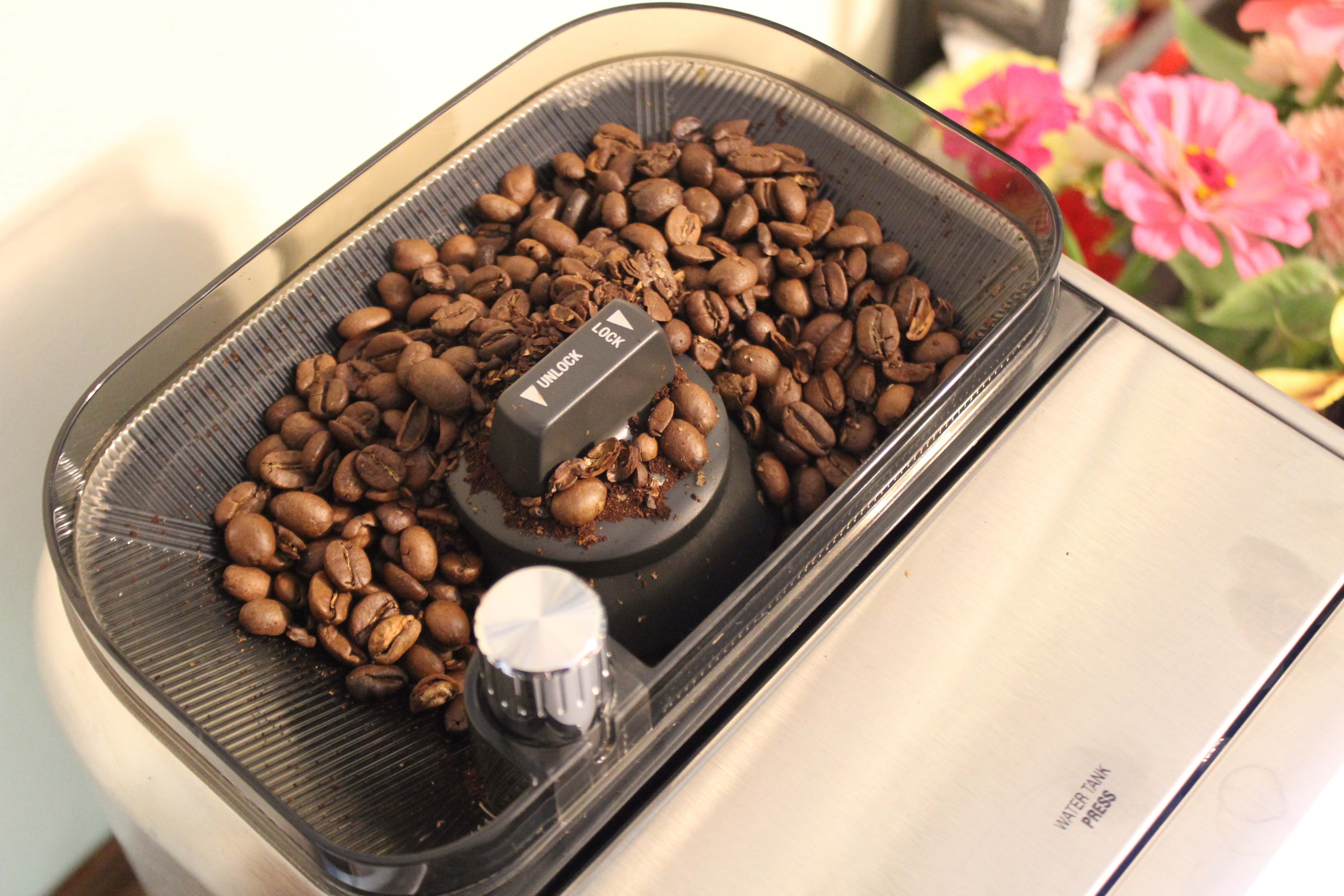
Calibrating the Grinder
Before you start using the Breville Coffee Maker, it’s a good idea to calibrate its grinder. According to the brand, this helps to adjust grinder output times to compensate for coffee beans of different origins, age, and roasts. To do this, you press the “Menu” button and scroll down to “Calibrate.” You’ll want to make sure the machine’s filter is empty, clean, and properly in place, then you can press start.
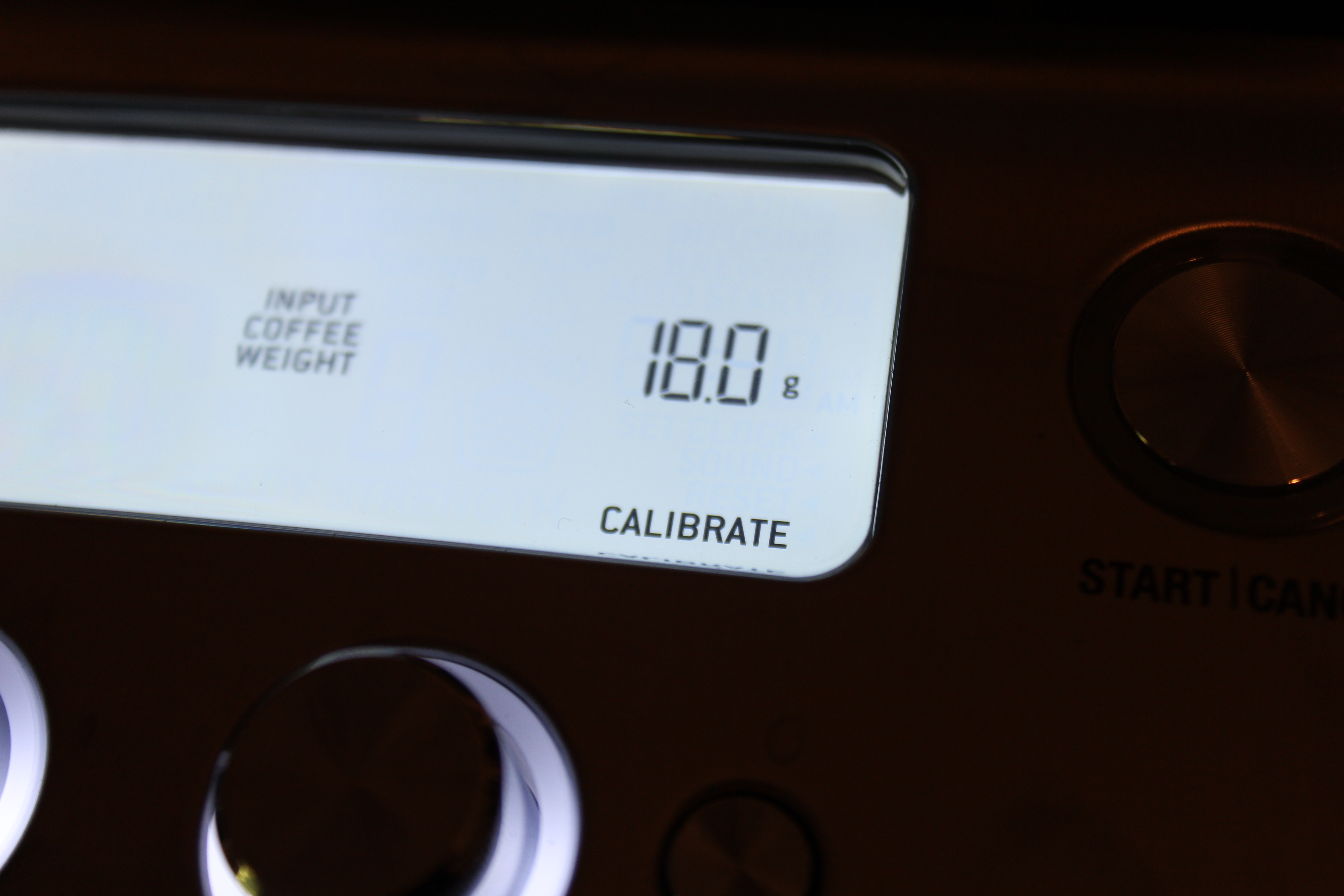
When I used this setting, the grinder ran for 10 seconds, dispensing ground coffee into the filter. From there, I was able to weigh the grounds using my kitchen scale. Once you have a weight measurement, you input it back into the machine—for instance, when I calibrated the grinder with our preferred coffee beans, it yielded 18 grams of coffee grounds. The whole process only took a minute, and you’ll want to do it if you start using beans of a different shape, size, or roast to ensure your coffee tastes as good as possible.
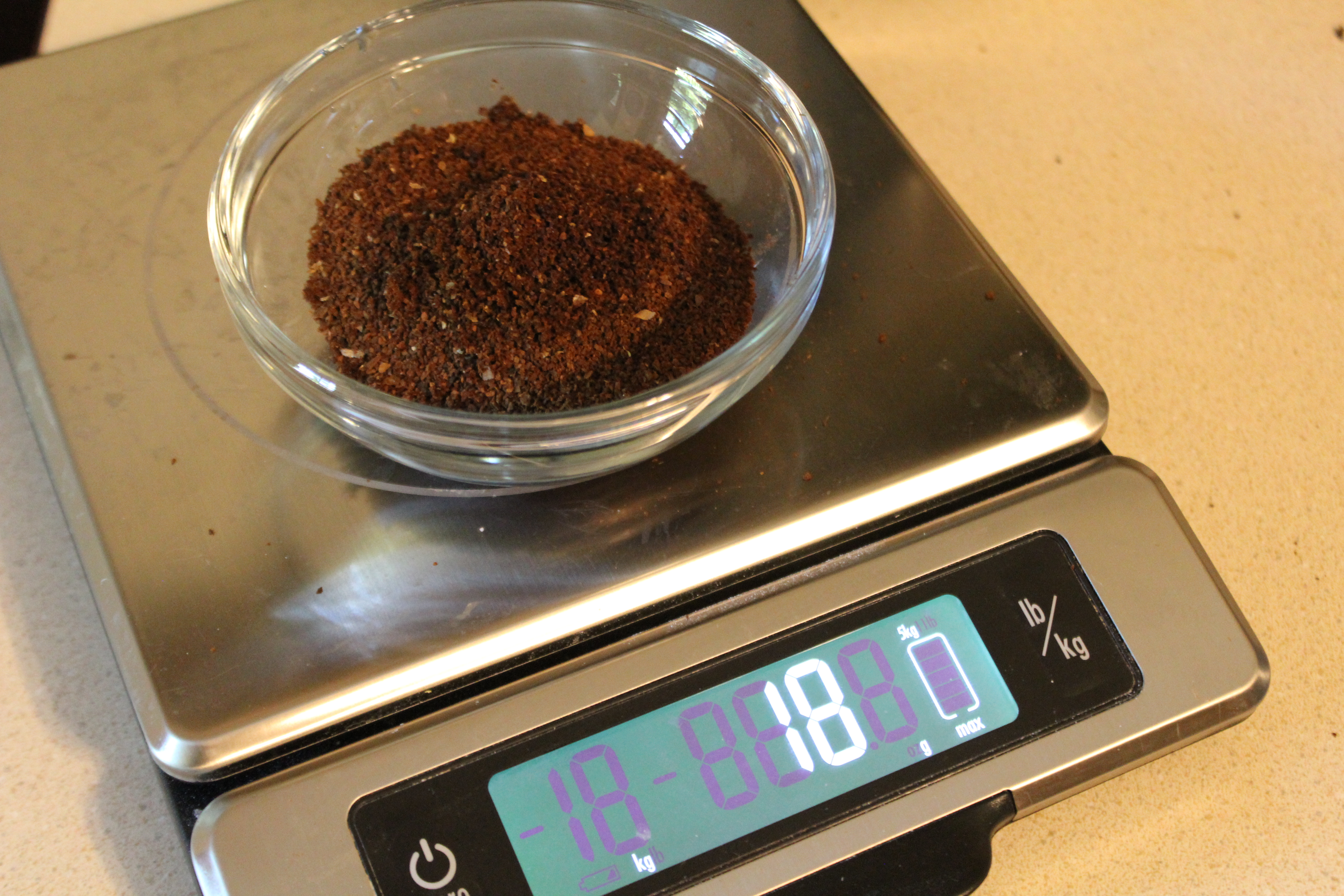
It’s worth noting that the burr grinder offers a variety of fineness settings—ranging from 1 to 5—that you can experiment with. The brand notes that for smaller volumes of coffee, a fine grind, such as settings 2 or 3, usually works best, whereas for larger volumes (aka a full carafe), a medium-coarse grind, like 3 to 5, works best. We used setting 3 throughout testing, and it worked extremely well for our needs.
Carafe Mode
In my house, we make a carafe of coffee each morning, so the Breville Coffee Maker got plenty of use over the course of two weeks. To get the machine ready for use, you fill the bean hopper with coffee beans—it can hold up to ½ pound at a time—and fill up the 60-ounce water reservoir, which is accessible via a flip-up compartment on top of the machine. Unlike models such as the Wolf Gourmet Coffee Maker, which require you to use an exact amount of water for the desired number of cups, the Grind Control Coffee Maker allows you to simply fill the reservoir up to the top, and it automatically uses as much water as needed. I love this feature, as it often meant I could brew several cups or carafes before needing to add more water to the machine.
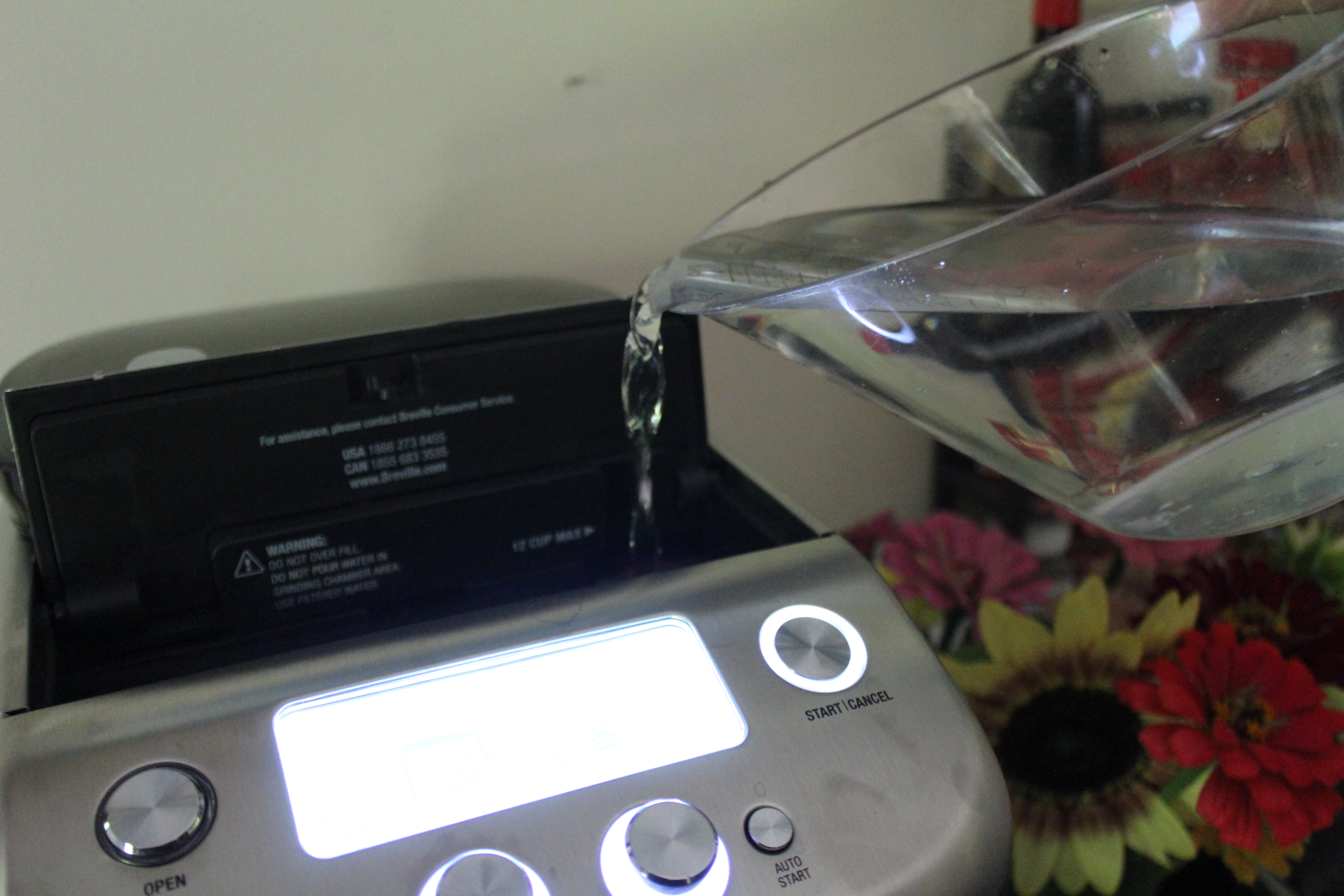
When you’re ready to brew a pot of coffee, all you have to do is make sure the machine is in carafe mode, then select how many cups you want to make, anywhere between four and 12. You can also adjust the brew strength between levels one and eight, which indicates to the machine to use less or more coffee grounds. (Or, if you want to use pre-ground coffee, twist the Strength dial all the way down, which allows you to put ground directly into the filter and bypass the grinding stage.) I played around with the strength settings a bit, and there’s a noticeable flavor difference between settings. We decided that level five is best for our tastes. Once you’ve selected your brew strength, it’s just a matter of pressing the “Start” button.
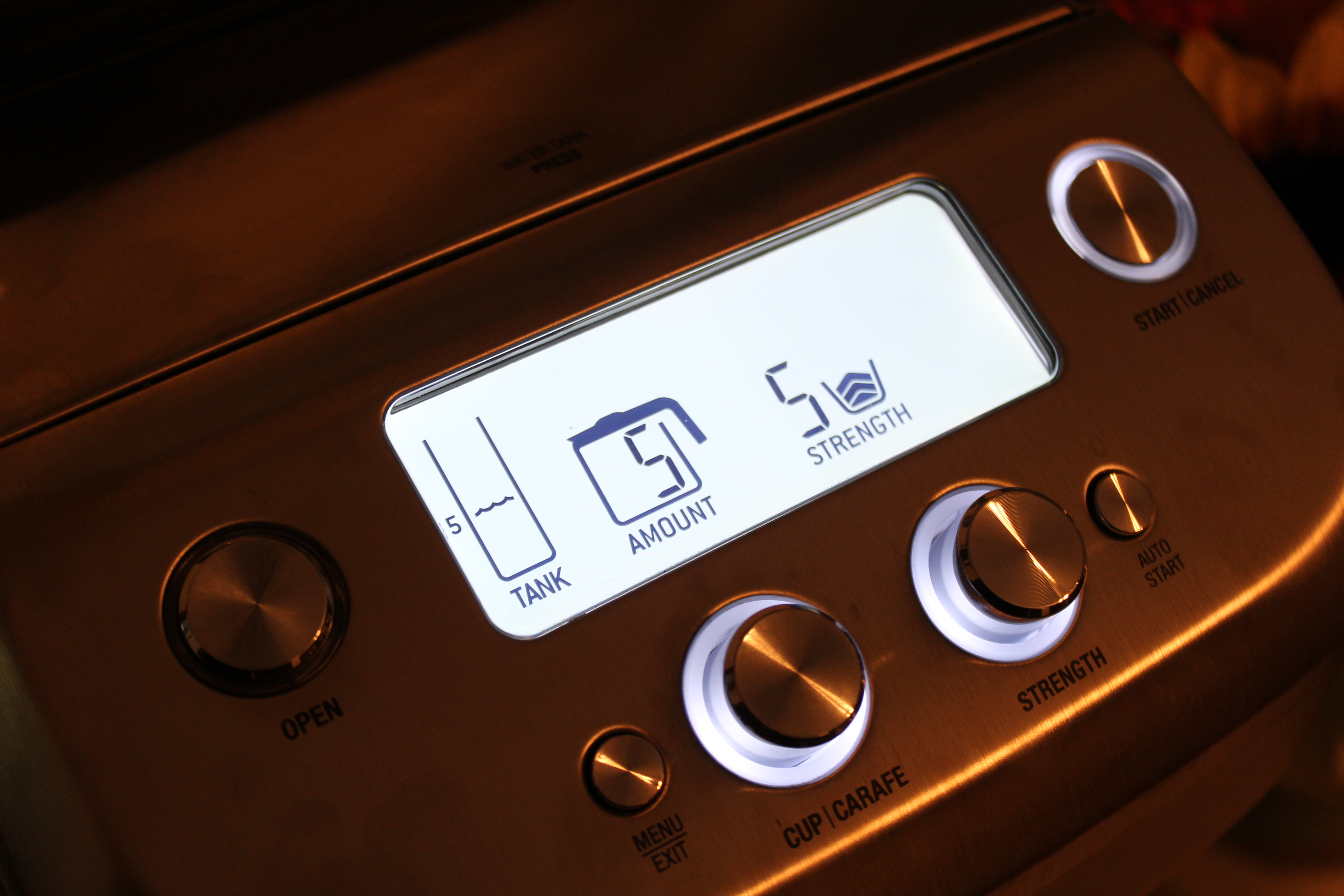
As soon as you start the machine, it begins grinding up beans—the noise is fairly muted, and it didn’t wake my partner if he was still asleep a few rooms away. I did notice that the beans tend to fall into the grinder from the front of the hopper, and you have to periodically push beans at the back of the hopper to the front. Otherwise, they get stuck.
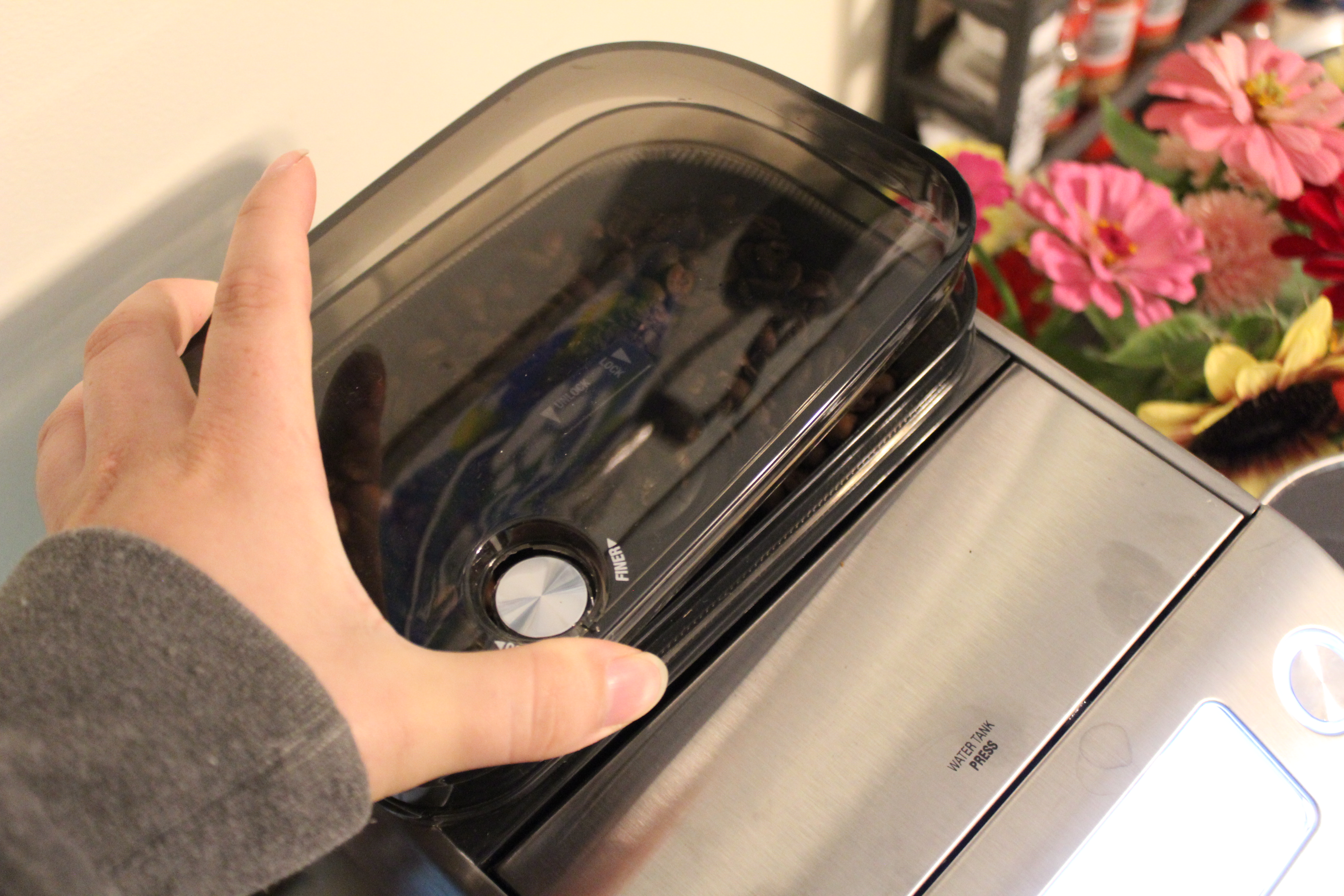
As it brews, the machine’s LCD screen has a count-down timer that lets you know exactly how long it will be until your coffee is ready. The machine pre-heats the water and then brews your coffee, and it usually takes around 5 or 6 minutes to brew five cups. If you need your daily dose of caffeine ASAP, you can pour a cup of coffee while the machine is still brewing—the Brew Pause feature temporarily stops the flow of coffee when the carafe is removed. However, you need to put it back in less than 20 seconds, or the coffee basket may overflow.
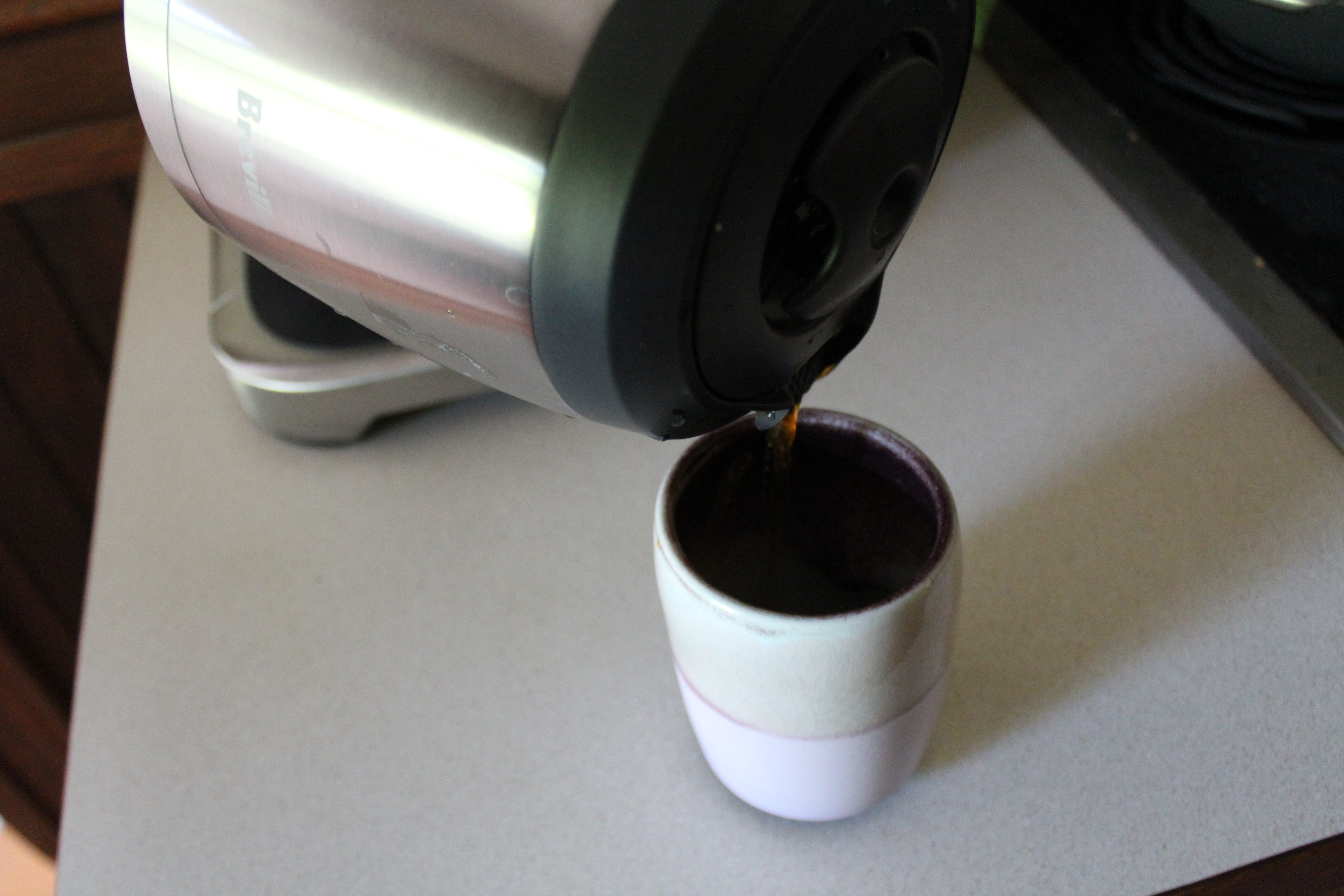
When the machine finishes brewing, it beeps a few times to let you know it’s done, and then it goes into standby mode after a few minutes. From the very first time I used the machine, I found the stainless steel carafe quite frustrating to pour from. You have to tilt it completely perpendicular to the counter to get any liquid to come out, and if there’s only a small amount of coffee in it, you practically have to flip it upside down. This is due to a large lip on the inside of the carafe, and it’s one of my least favorite things about the machine.
Single Cup Mode
In addition to brewing full pots of coffee, the Grind Control Coffee Maker can also be used to make just one cup at a time. To enter single cup mode, you simply press the knob labeled “Cup/Carafe,” and the LCD screen will indicate the change.
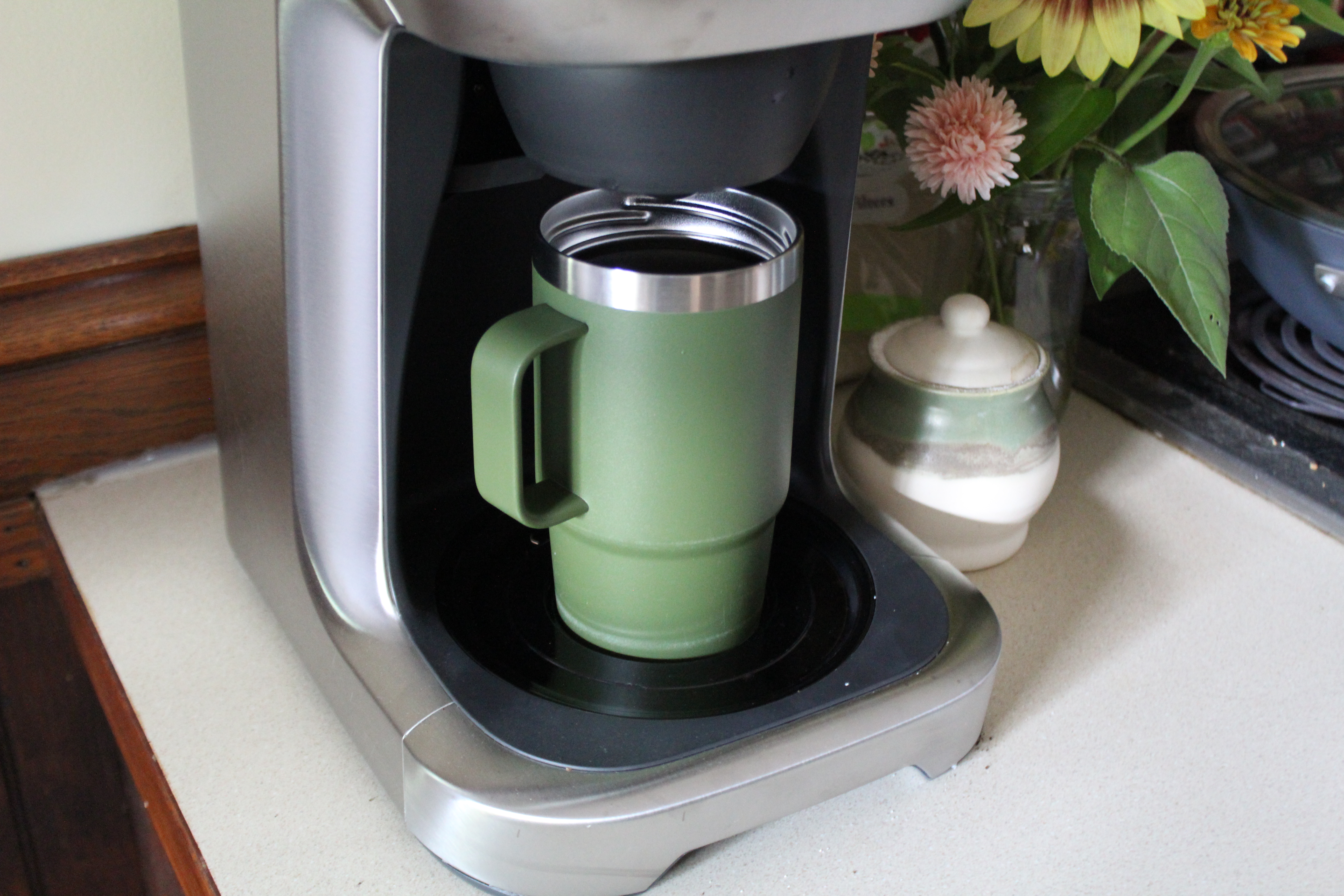
When I tested this setting, I was surprised to find that you can actually adjust the serving size to suit your needs. By rotating the same dial, you can select from seven drink sizes, ranging from 235 to 590 milliliters. I did think that it was strange to have the sizes listed in milliliters—drink sizes are most commonly measured in ounces, so I found myself doing the conversions on my phone when picking a size.
When using the single-serving mode, you can forego the carafe and simply place your mug under the coffee dispenser. If you’re brewing into a taller travel mug, you can even remove the drip tray to accommodate the taller height—a thoughtful detail! Once you hit start, the brewing process is the same as in carafe mode. The machine grinds the beans, pre-heats the water, infuses the coffee grounds, then brews your drink. There’s a count-down timer that lets you know exactly how long it will take, and when the brewing is complete, the machine dispenses the coffee right into your mug.
I used this setting several times during the course of testing, as it’s ideal for those times you just want a single cup of coffee. I frequently opted for this mode in the afternoon when I needed a midday pick-me-up, and my partner made use of it when he left early to go golfing, as it was particularly handy to be able to brew directly into his to-go mug.
We both agreed that the coffee quality was the same in both operation modes, and the brew was much stronger and more flavorful than what you’d get from a pod coffee maker. The only time the coffee quality suffered was when the bean hopper was too low—the machine wasn’t able to grind enough beans, and the coffee was watery as a result.
Cleaning, storage, and maintenance
Each time you use this coffee maker—whether for a single cup or full carafe—you have to empty the grounds out of the filter. There’s an “Open” button on the left side of the control panel, and when you press it, the filter compartment pops open. I will say that the compartment flings itself open quite quickly, and it startled me the first time I did it. You’ll want to use caution so it doesn’t smack you.
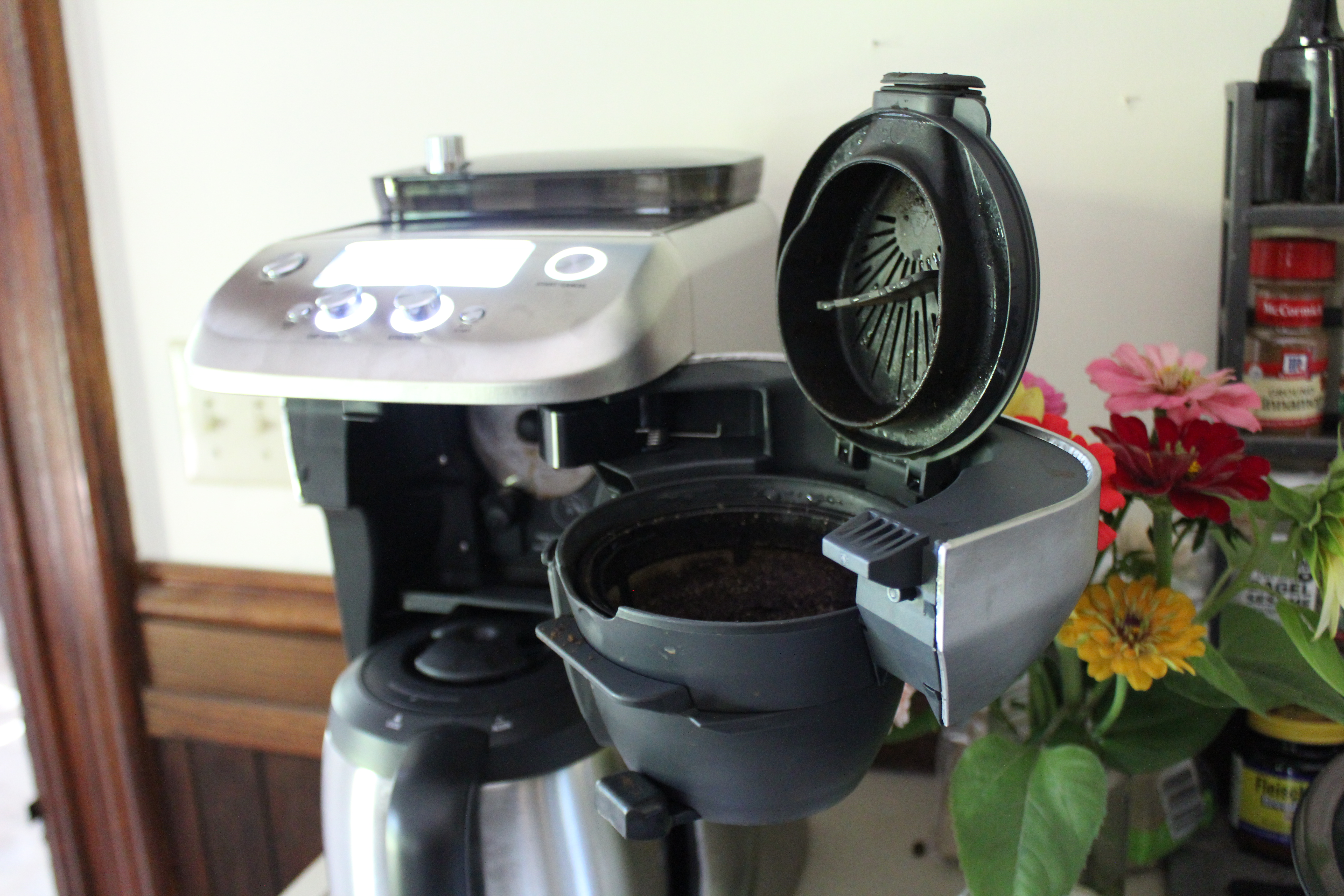
Inside the compartment is the removable coffee basket, which houses the filter. The machine comes with a Gold Tone filter that you can rinse out and reuse, but you can also use flat base basket-style paper filters for easy cleaning. When emptying the filter, you’ll also want to rinse out the basket itself, as grounds tend to get stuck in the chute and along the rim. During your daily cleaning, the brand also recommends checking the coffee chute disc for any build-up. The stainless steel disc is visible when the swing-out door is opened, and if there are grinds stuck to it, the machine might not perform properly.
You also have to rinse out the carafe after each use, which is slightly inconvenient thanks to its large rim. I tend to dump out any remaining coffee then rinse it with warm water, and then I use a sponge to give the interior a quick scrub. It’s pretty awkward to do because the opening is small, and it’s just another reason this carafe doesn’t get top marks in my book. None of the components are dishwasher-safe either, so you do have to wash them by hand.
While we didn’t have any problems with this machine during several weeks of testing, it’s worth noting that some reviewers do report issues with the bean grinder after several months of use. The most common problem is that the grinder chute gets clogged after use, which makes the machine much more time-consuming to maintain. Keep this in mind as you shop, especially considering the coffee maker only has a 1-year limited warranty.
How does it rate online?
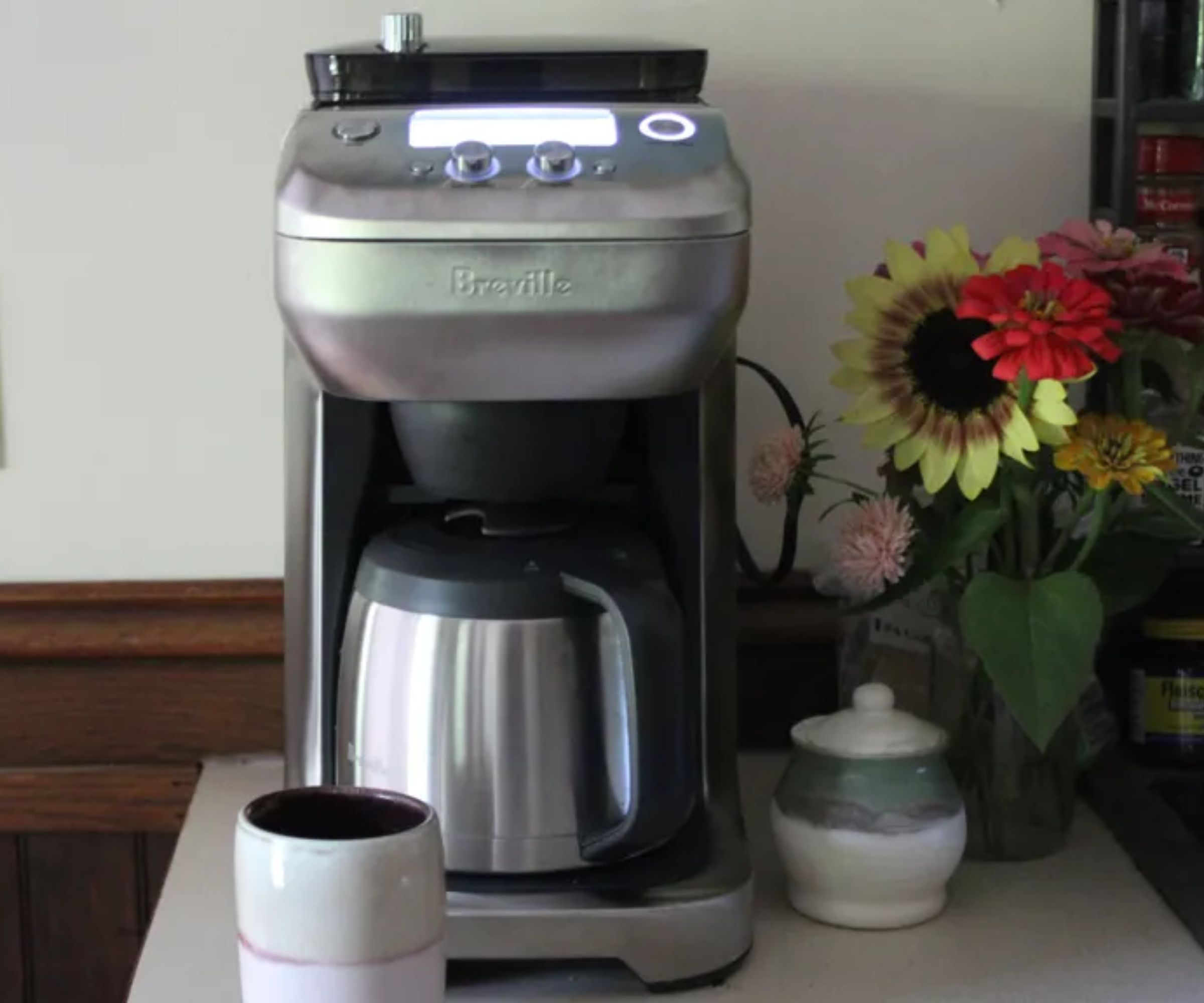
The Breville Grind Control has some really great reviews online. I've seen baristas who swear buy it and other expert reviewers who have been using it for years, so you know that it can stand the test of time. More generally, people praise the Grind Control for its strong coffee, efficient grinder, and simple-controls. Lots of customers also highlighted that the insulated carafe is brilliant for keeping coffee warm for hours without it tasting stale or burnt.
There are very few criticisms of the Grind Control out there. If you have a sensitive palette, you might find that this takes some calibration to get perfect and it is relatively high-maintenance in terms of descaling, but that's about it for downsides.
How does it compare?
As far as drip coffee makers go, this is the best that has an integrated grinder. It's really unbeaten. If you like that style of coffee but want to drink yours a little quicker, it's worth investing in the Cuisinart Grind & Brew Single-Serve Coffee Maker. This grinds coffee into a small basket and then it extracts a 4 or 8 oz cup of coffee. It's light, strong, and delicate. You can't go wrong with it. The only downside of the Cuisinart is that it can't cover big batches like the Breville Grind Control, nor will it keep your coffee warm for you.
We’ve also tested the Breville Precision Brewer Thermal Coffee Maker, Breville's other drip coffee maker option, which also rated slightly higher. This model is a great choice if you don’t require a built-in grinder, and it offers six different brew modes, including ones for cold brew and brewing over ice, allowing you to prepare your coffee in a variety of ways if customization like water temperature and flow rate is what gets you excited when it comes to brewing. The Precision Brewer is even approved by the Specialty Coffee Association for reaching the Golden Cup Standard—the Breville Grind Control isn’t. Plus, it’s roughly the same price point as the Grind Control model so it will fit within your budget.
Should you buy it?
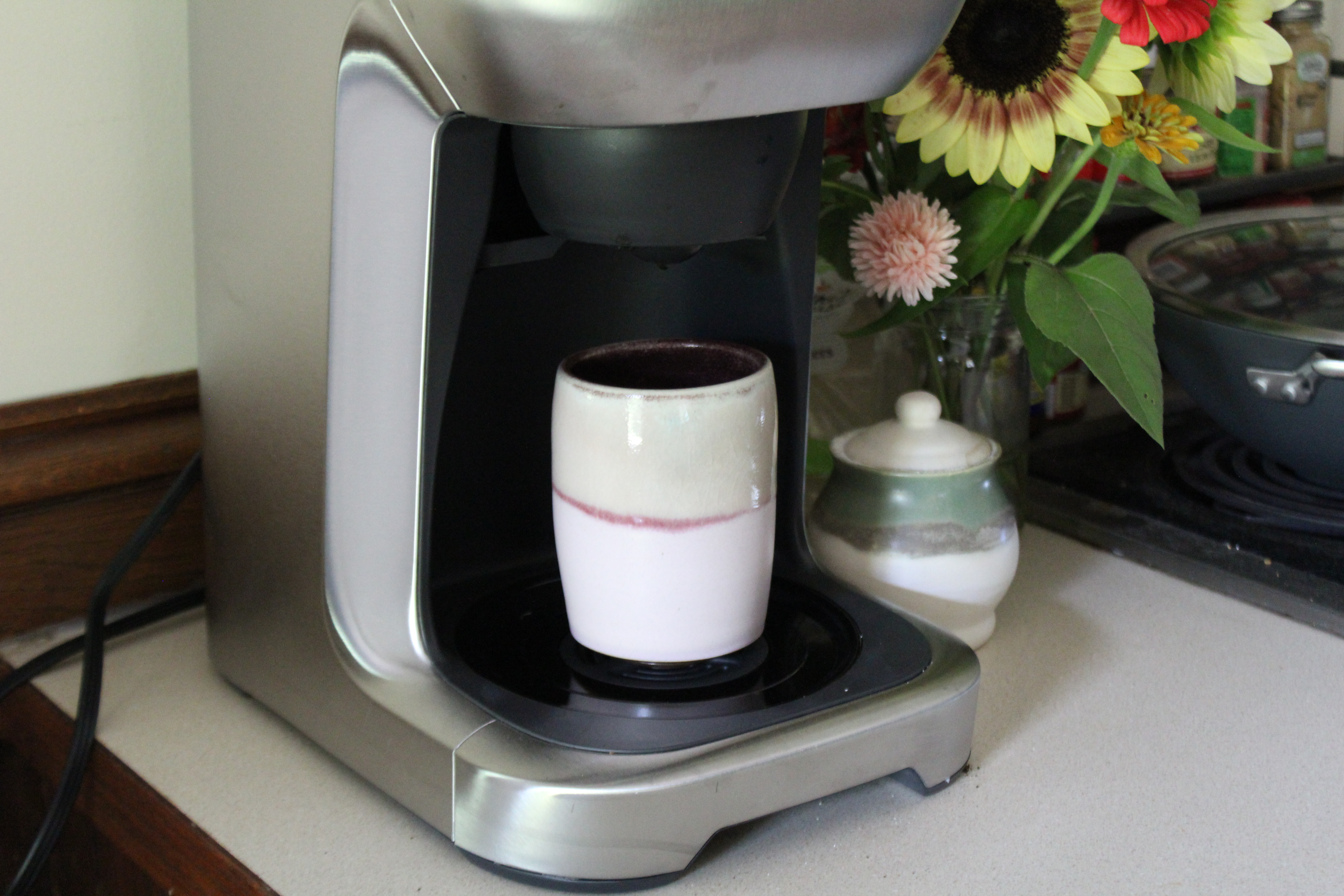
The Breville Grind Control Coffee Maker retails for $350, which is a bit higher than similar grind-and-brew machines. We love this machine’s versatility, which makes it easy to brew coffee that’s exactly to your tastes, and it’s extremely convenient to be able to brew either a full pot of coffee or just one serving. Plus, the coffee was always rich and flavor-packed, in part thanks to using freshly ground beans.
However, we were only able to test this coffee maker for a few weeks, and a significant number of users do report that the machine can develop problems over time. Keep this in mind before you purchase—it’s a lot of money to spend on an appliance that might break down in a year or two.
How we test
Before we review or recommend any product to you, we’ve tested it in-person as if it’s an everyday product. We have a specialized process for how we test coffee makers. I’m trained as a barista and a qualified Customer Advisor for coffee. This means that I’ve been through a number of processes to become an expert on all things coffee.
Before testing, we carefully research the claims that a brand makes about their product, so we know what we are looking for. We will also look at and test competitors, so we can place every product that we test on the market.
I took this Breville drip coffee maker and tested it alongside automatic machines, espresso machines, and other coffee appliances. I used it in an everyday kitchen and made sure to test every function. At every stage of the process, from unboxing to cleaning up, I made thorough notes and observations.







